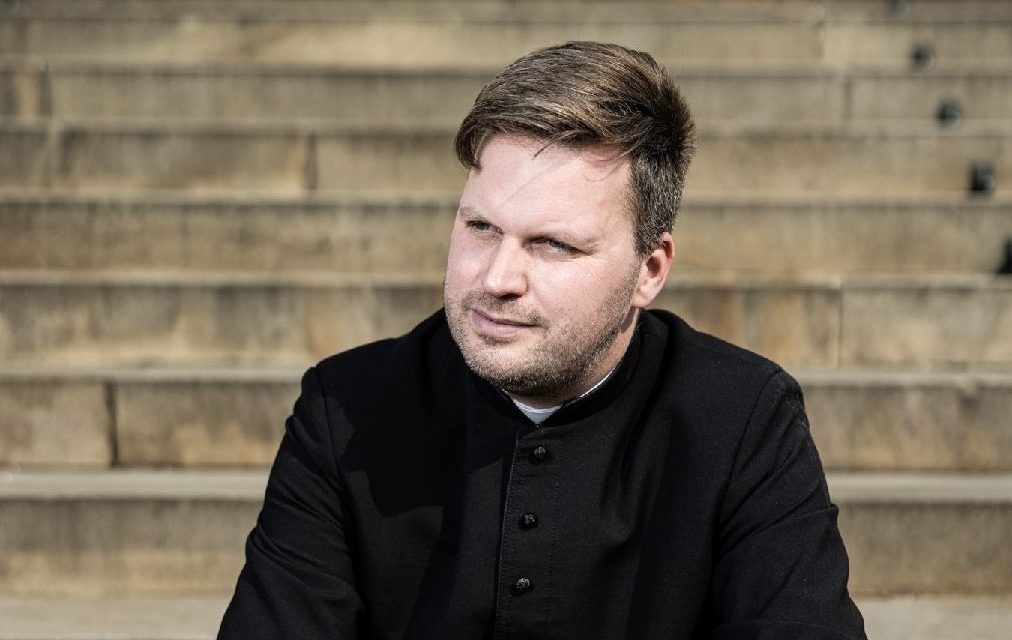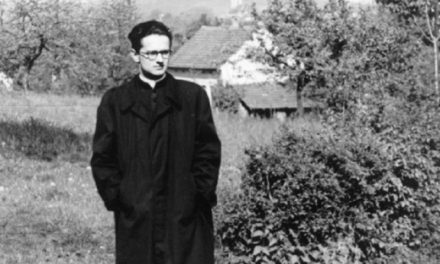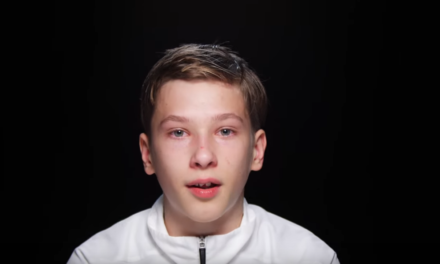"Now we still have time to warn Nineveh, Sodom and Gomorrah that you will be destroyed if you don't pull yourself together" - an interview hirado.hu with Father Gergő Bese on the occasion of Pentecost about the dangers of the liberal zeitgeist, church education and the message of the holiday.
He currently teaches religious studies in a Catholic and a state elementary school in Jánoshalmán, Bács-Kiskun County. However, he did not always prepare to be a priest, how did he enter this path?
- I attended the eight-grade secondary school at the Premontrei Szent Norbert Gymnasium in Gödöllő, which provided a good background and foundation for my later life. I had many excellent – and what is especially important today – authentic teachers here, who taught me wholeheartedly even in the difficult years of the nineties. In 2002, after graduation, I entered ELTE. Although I didn't grow up in a shelter, the liberal environment I experienced here was a real slap in the face for me. I had to wake up to the fact that the world is not like what I saw in high school. These experiences helped me understand what is black and what is white. In parallel with ELTE, I also completed theology, after which I became a German, geography and religion teacher in Csömör. I really like teaching, for me it is an "extra oxygen bottle". It was here that I felt that God was not only calling me to feed the young people with spiritual ammunition, but also to deal with the soul.
Compared to the metropolitan agglomeration, the small town of Bács-Kiskun county with eight thousand people is quite a change. What did Jánoshalmán receive?
– A closed community, a very disadvantaged settlement with a severely declining population, from which young families are disappearing. I didn't see any young people or families at the Mass. Between the two world wars, Jánoshalma was still a thriving settlement with excellent facilities. That is why it is very infuriating to me how much the country has forgotten about this region. It is very difficult to motivate children here, whose mother and father both live in the nihil. I have taught in many parts of the country, so I have experienced that not only disadvantaged students have serious problems. Crime, alcohol, drugs, porn addiction seriously endanger everyone. I see that we have a huge responsibility in spiritual education with the teachers, because if we let this generation go now, it could cause much more serious problems than before.
You are known for speaking your mind and often try to sound the alarm about social processes. Is it really that big of a deal?
– If someone openly says that there is a problem, then that person will not be a popular person. But I'm not fighting for popularity either, I want to save lives. Namely, the lives of those young people who represent the future. Yes, there are serious problems. Today, a significant number of children come into contact with drugs. I confess that drugs occur in all institutions, and unfortunately we are ineffective against them. Just one example: I was teaching in the neighborhood of Budapest, and in one of my Monday classes, a boy in the ninth grade was vegetating in the class with noticeably dilated pupils. Of course, I asked if there was a problem, and of course the class laughed at me. This kid jumped off a tower block two days later and died a horrible death. The social network should be developed in this area in order to be able to help young people more effectively, but these issues are a problem on a global level, we are not talking about a specifically Hungarian peculiarity.
We see the examples that there are also big problems with the mental health of teenagers.
Today, smartphones are available to everyone. Children spend an average of four to five hours online, which is an awful lot of time. The fifth graders are already trying to dress up as they saw on TikTok. Porn addiction is spreading, girls often offer themselves sexually, just to draw attention to themselves.
Who is most at risk?
- People from broken families are definitely more at risk. Today, two-thirds of children come from such families. They do not know what a healthy family is, what the role of mother and father in a family means. Many children have never seen their mother being hugged, kissed and told that you are the most dear to me. Adolescent boys cannot talk to men at all about getting to know each other or how relationships work, and they don't even see a model of male roles in broken families. In most cases, the girls' explanation consists of "my little girl, we're going to the gynecologist, we're going to prescribe birth control for you, because I don't want to be a grandmother." Or "my son, bring a tire, because I don't want to be a grandfather" - and with that mom and dad ticked off the information.
How do young people get information about these issues?
– When I asked the children if they knew how their parents met, almost no one knew the answer. Almost nowhere do they talk about similar topics in the family, so this empty space is filled with something by young people. They go on the Internet, a frantic search begins, which unfilteredly pours dirt on the children. They see that the more girls they sleep with, the better. Lose your virginity as soon as possible, consume porn movies. At most, they discuss these topics with their friends, but they can't help either, because they also get their information from these sources. A significant number of our 11-13-year-old boys are already addicted to porn. The sexuality they see in it is a distorted image of the real one, but that's what they will look for in real life as well. Women who suddenly arrive at the door, serve only to satisfy their desires, and then leave. If this becomes the pattern for someone, their first sexual experience will be a huge disappointment. A barrier is immediately formed in both boys and girls, many begin to worry that the problem is with them. In such cases, it is not only the formation of a distorted self-image that threatens. Many run into the arms of older men and women, saying that only the young are the problem. In others, after bad experiences due to a false image, the question arises: maybe I shouldn't be looking for people of the opposite sex?
Such and similar thoughts arise in young people, who therefore become vulnerable to the LGBTQ propaganda that flows everywhere today as a fashion.
It really flows from everywhere. Just one example: at Christmas, I wanted to play Bible stories from one of the big video sharing sites for the kids, and we had to watch the Background Society for Gays commercial before every cartoon. Among the children, there were those who already knew the commercial almost verbatim, because it was always played before all the cartoons.
These processes take place along the prevailing liberal zeitgeist.
- In the words of Imre Vejkey, the difference between liberalism and the Christian view can be well illustrated with the following analogy: there is a bridge over a fast-flowing river. The Christian puts a barrier on the bridge, the liberal does not. We want to get to the other side without falling into the river. According to the liberal view, you get to the other side of the river however you want. You can play on the edge of the bridge, jump on it, but there is a very high chance that you will fall into the fast-flowing river and drown. Yes, we set up supports and frames, outside of which you can't jump much. The question is, should I cross the bridge with the barriers there? Or do I want to cross completely freely, on simple platforms, and then what will happen will happen?
Seeing the young people, the frameworks are very much needed, we want to provide them.
In the prevailing liberal ideology, it is expected that there are no frames, which is why families do not work. There are no consequences for actions. Are there rules in the family? You didn't get home until eight in the evening? Are we talking? Is there any punishment that the child learns from? Such frameworks must exist in a Christian institution, otherwise all hell breaks loose. We also see that the institutions that have these are successful. The most popular teachers are those who are strict, consistent and predictably reward performance.
The church institutions are working against a huge headwind, messages contrary to the Christian worldview are pouring in on the children from everywhere, what are the chances of achieving results this way?
"We must be like the trout." Trout is a demanding fish, it likes clean water and swims against the tide. You have to overcome a lot of obstacles to get to the pure source and reproduce. You have to jump levels where there are bears who want to catch you. However, trout is a quality fish, not a mass commodity. The church is used to being constantly under attack. We are used to the fact that when Christmas or Easter comes, a pedophile story comes out, even about priests who are no longer alive.
There are always similar discounts during the special periods. The devil masterfully controls it so that it always stings at the worst time, in the most painful place.
The world and Hungary are also on the road to secularization, everything works against the basic Christian values. The very concept of the individual is an example of this. For us, man is body and soul, on the other hand, the world says that man is just a body, a consumer, a serial number. Based on these, a school must be run completely differently, we have a different approach to education. The three important pillars of our education are body, spirit and soul. These three must not be left behind, which is why sports must be taken up and curriculum education must be kept in mind, and spiritual education must permeate everything.
Before nationalization in 1948, a significant part of public education was maintained by the church, despite the increasing proportion of recent years, it does not even come close to the period before communism. Yet church schools are under constant attack. Why do you think many people reject church schools out of their gut?
– The most important thing is to go back to the source, these are the individual, the family, the community, the nation. We have to rebuild these concepts in everyone. Church schools are also hated by the liberal world for this reason, because we say that the king is naked. We say that we do not consider the liberal worldview prevailing in the world today to be normal. We demonstrate why this is a fundamentally doomed ideology that completely turns the world off its normal schedule.
The absurdities characteristic of Western Europe and North America will reach us with a little delay. We still have time to warn Nineveh, Sodom and Gomorrah that you will perish if you do not pull yourself together.
To visualize the processes, let's imagine that Hungary is a small village. There is a huge dam above the small village, through which a small river flows into the village. The Hungarian government is currently trying to keep the dam and the huge body of water behind it with its measures. The dam is still standing, but there are already a lot of small holes in it, and part of the village is fighting to demolish the dam. They don't see that it will destroy the village. It is interesting that, as many times before in history, some Hungarians are calling their own executioners.
Not only at the political level, but also among the population, many people fear church schools.
- Some people are averse to church institutions because they believe that those who attend church schools must undergo ideological training. They brainwash the children and raise them to be sleazy monks and nuns. The pre-revolutionary party-state Russian and Marxism education is frightening to many, which they want to apply to church education one by one. Spiritual education and value education are mixed with ideology education. It will take a long time to dispel these misconceptions. It is also important to point out that before 2010, approximately 6 percent of students attended church schools, at a time when the followers of the historic churches accounted for more than 50 percent of the population. No one says that church education should reach this number, but it also shows that the difference in the proportions was enormous. After 2010, this decreased, today the share of church schools is around 16 percent. Today, if someone wants to study in such a secondary school, they can find an opportunity in any area of the country within a radius of approximately 30 kilometers.
According to critical opinions, the excessive funding of church institutions is done to the detriment of public schools.
- There is also competition in the field of education, but we do not want to grow at the expense of others. We want to provide a choice for those who consider Christian values important as an educational direction. Anyway, not all church institutions work well, in many places public schools are more popular. The Vatican treaty – which, by the way, was concluded by Gyula Horn's government – clearly stipulates that church institutions must receive the same norm per student that state institutions also receive. This is still the case today, the claim of overfunding is factually incorrect. Church institutions do not receive more money than state institutions. This overfunding bluff has been told in every right-wing government, because certain circles expect that it can be used to incite against the churches.
Those who send their children to a church school know that the plus is not in the material, but in the spiritual ammunition that we try to pass on to the children.
In addition to equipping our students with competitive knowledge on the labor market, we also want to raise happy fathers and mothers from children who know the difference between good and bad, recognize black and white, and are able to make the right decisions.
Surely it's the church's job to teach this to children, parents can't do it?
– This may come as a surprise to many, but a significant number of parents do not teach them to their children. Therefore, it is most important to teach our young people the most basic human and social values. Some parents send their children to a church school because they know that they will not learn bad things here. Just one example: the children always ask the religious teacher about premarital sexuality with great interest. Our answer is clear: everything has its time. We cannot give in to society's "expectations"! It is important for young people to understand that cleanliness is a treasure that is given only to those who deserve it. They must understand that by "putting on the brakes" they will not become less, but become more valuable. We want to teach children similar values in church schools, let them set high standards and have healthy values. If they understand that, then we can build something better.
There has been a Christian-conservative government in Hungary continuously since 2010, and the critics are sure to say, why didn't it solve the previously listed problems in eleven years?
- From this point of view, 11 years seems like a long time, it is a slow process. If the church takes over a school, you have to wait at least 10-15 years until it becomes a truly church school. Eight years until the student body is completely replaced, time until the faculty can look in one direction. I have participated in several such constructions, forging the teaching staff, spiritual exercises, team building is a very serious task. Many schools can actually only be considered truly church institutions from around 2020. Some have not even reached this point yet, in many places the necessary infrastructure is only now being built. It takes a long time to transform and a lot of work, but we are already seeing results. Church schools can select applicants within four to five years of acceptance. It is typical that in areas where one of the many small schools becomes a church school, it becomes prominent, even if the faculty remains roughly the same.
It is already certain that marriages conceived in Christian communities are more lasting and fruitful. So, in addition to living longer, such families are blessed with more children. You can already build on them, they represent the future.
As a result, more and more young Christian communities are operating, and the young people's desire for God is increasing. For example, I never thought that there would be a Christian site in Hungary that is visited by 5-600 thousand people per month, but 777blog has achieved this. We can organize events for young people from 4 to 500 people month after month. All this shows that there is a spiritual awakening and that young people need authentic, Christian messages. Of course, we still have a lot of work to do in this area, but the first steps have already been taken. If a government comes back that wants to re-nationalize the church institutions or reduce our support, then we would not be able to maintain our schools, which of course would waste our work so far. That's why the stakes are huge for us.
Now at Pentecost we celebrate the outpouring of the Holy Spirit. What does this holiday tell us in this special period, nearing the end of the epidemic?
- Pentecost is our third biggest holiday, after Easter and Christmas. After the resurrection of Christ, he constantly spoke to the disciples about the coming of the Holy Spirit, which will strengthen them in their mission. Christ said at his ascension to go and make disciples of all nations and baptize them in the name of the Father, the Son and the Holy Spirit. For this, the apostles would have been weak and few if the Spirit did not come and they did not receive his gifts, courage, determination, and the ability to give their lives for the master whom they did not dare to follow on Good Friday at the cross at the base.
Every year, Pentecost brings us the holy spirit so that we can draw strength from it for our family life, our profession, and our national self-awareness.
Pentecost is especially important to us Hungarians because of Csíksomlyó, where the Blessed Virgin and the coming of the Holy Spirit meet. We are not only a nation of Mary, but also a nation imbued with the Holy Spirit. I wish everyone now that at Pentecost we can gain new strength with the fire of the Holy Spirit, dare to turn our eyes boldly towards the future, dare to trust God and that the Holy Spirit gives strength to our mission.
Source: Tamás Jancsó / hirado.hu












